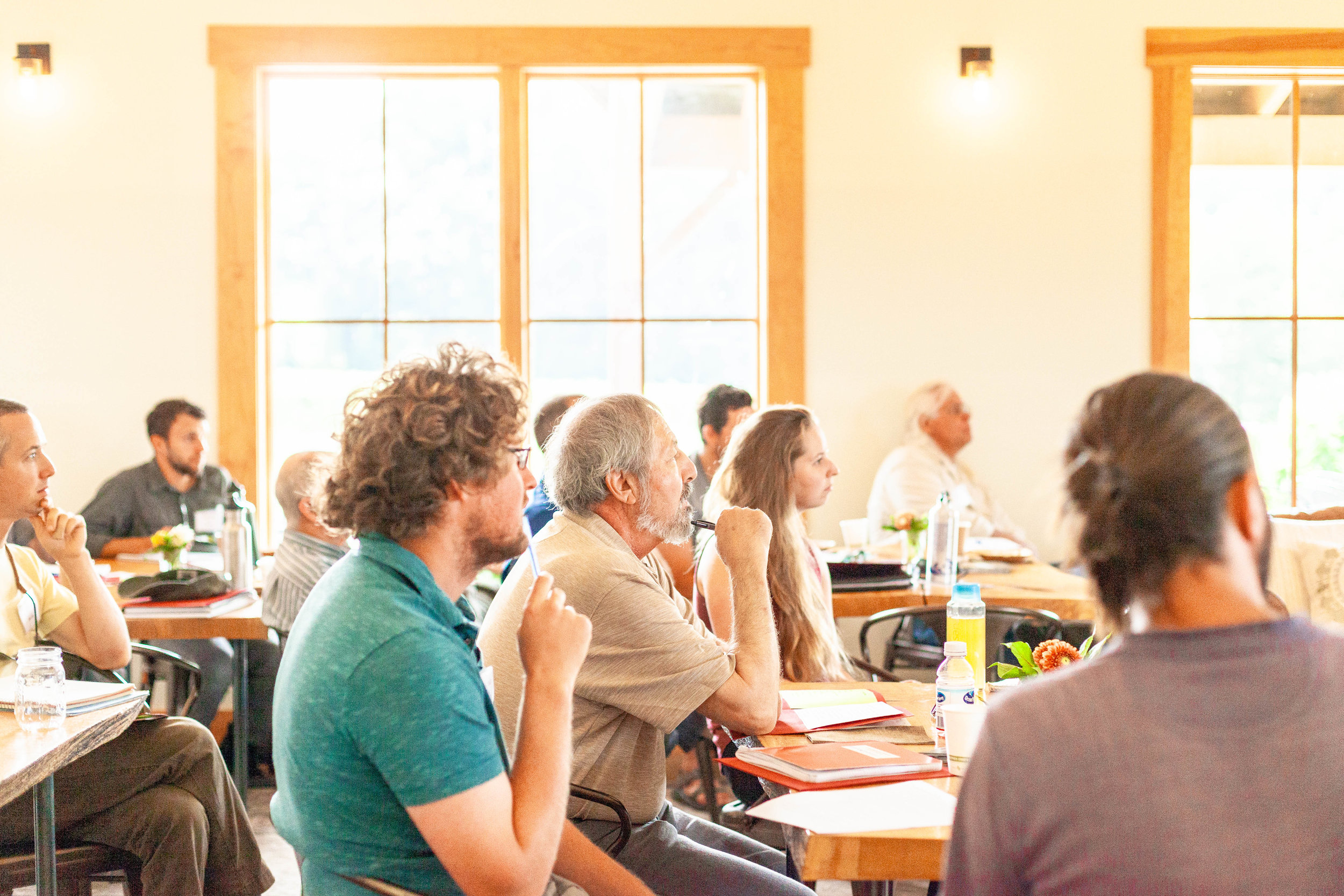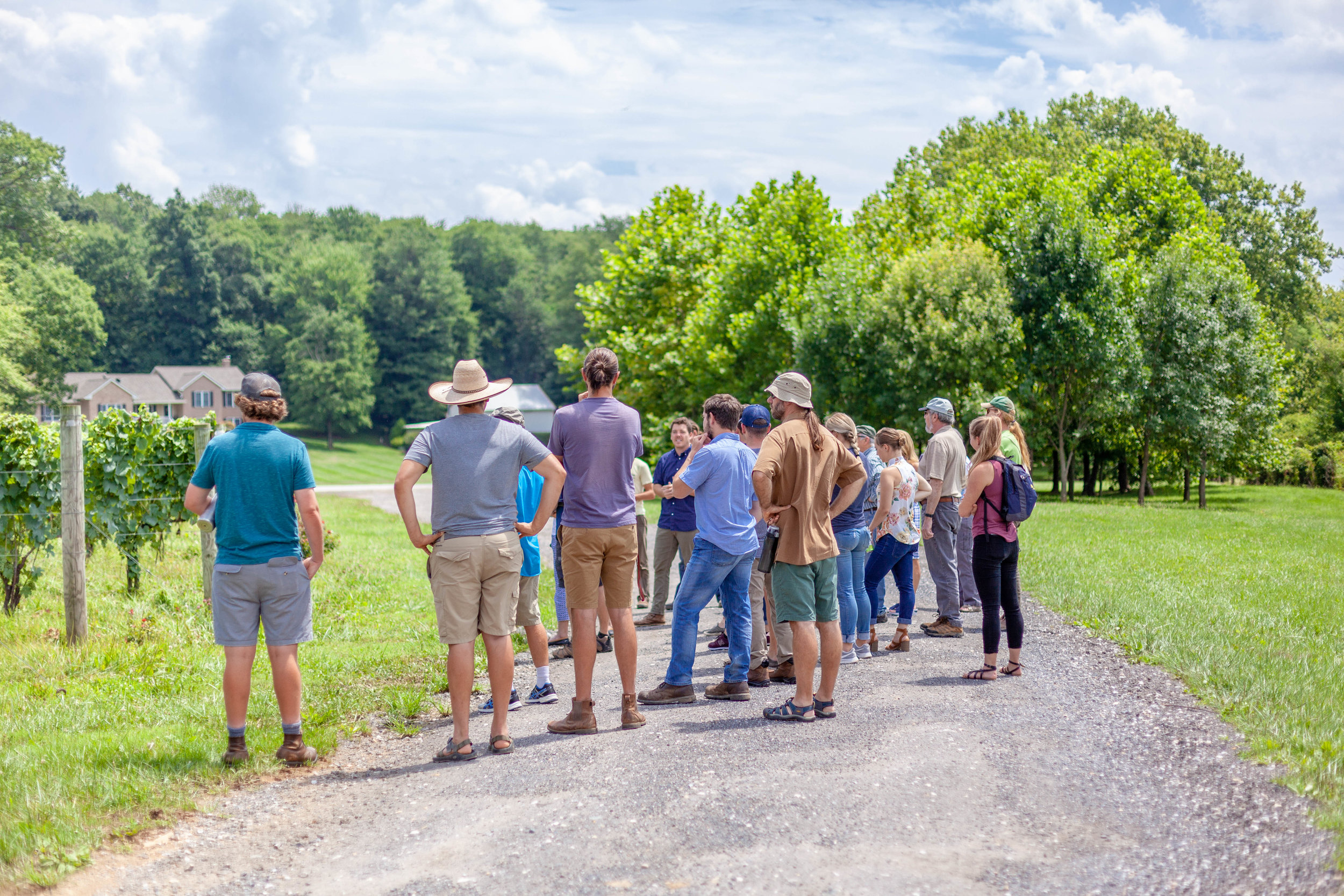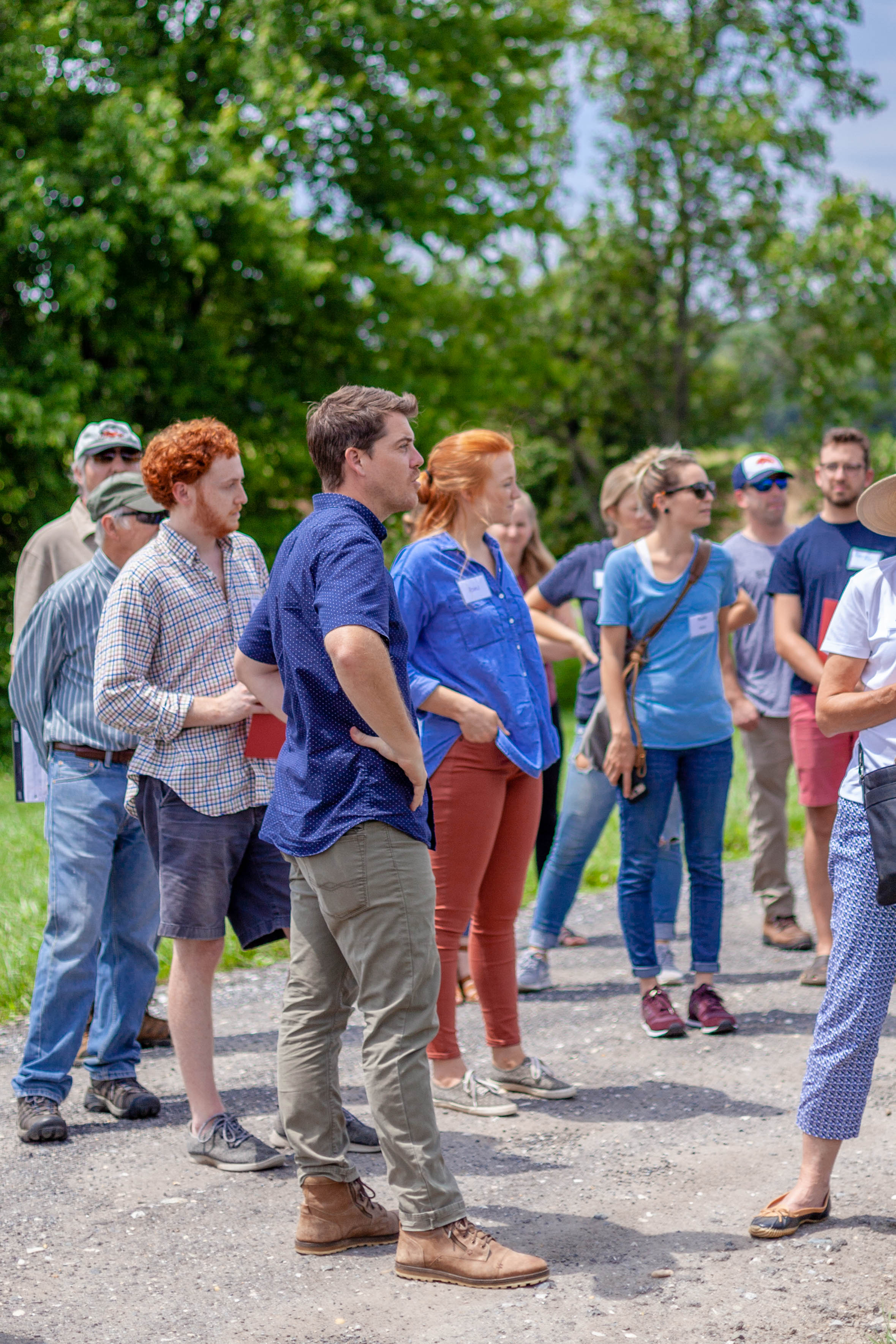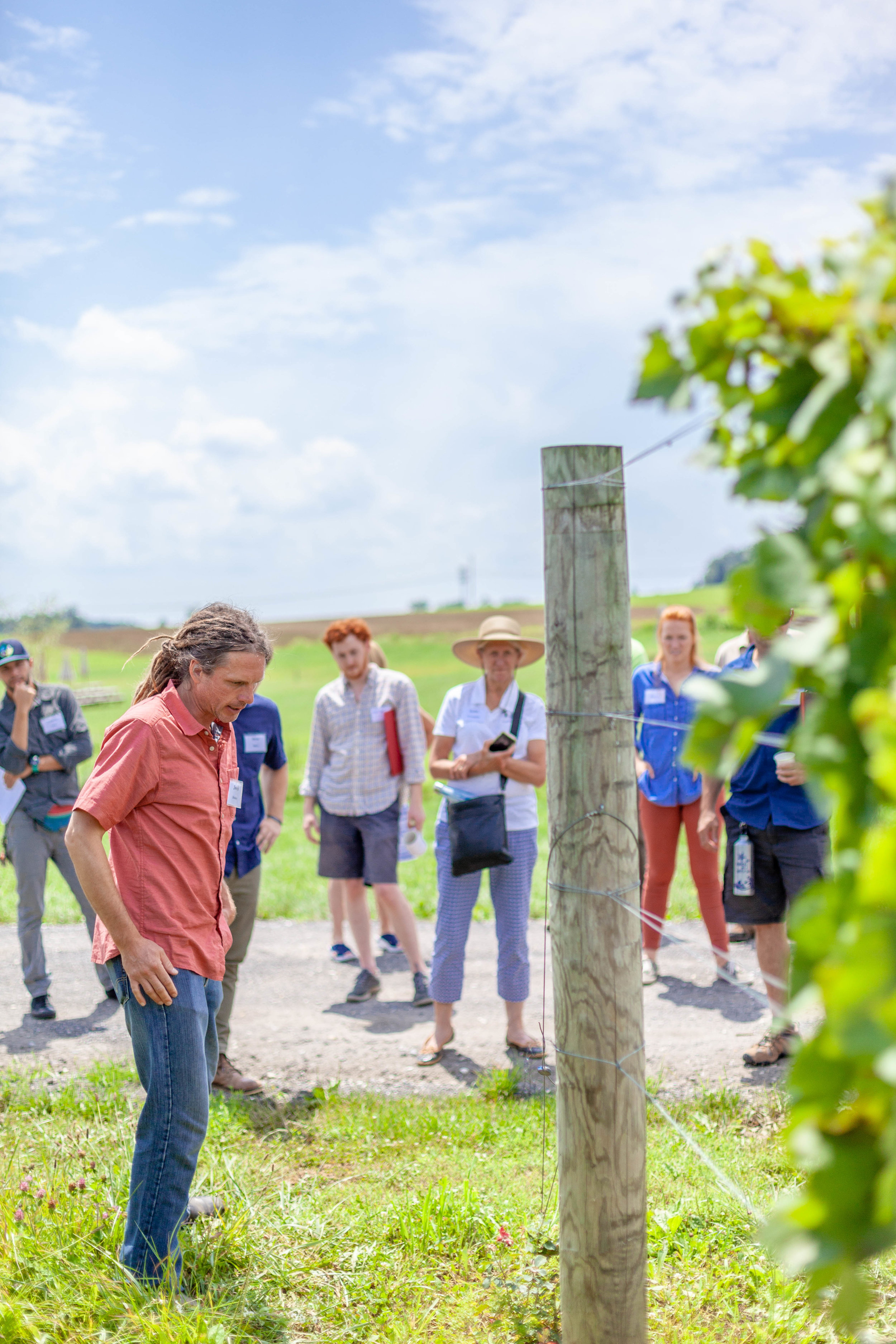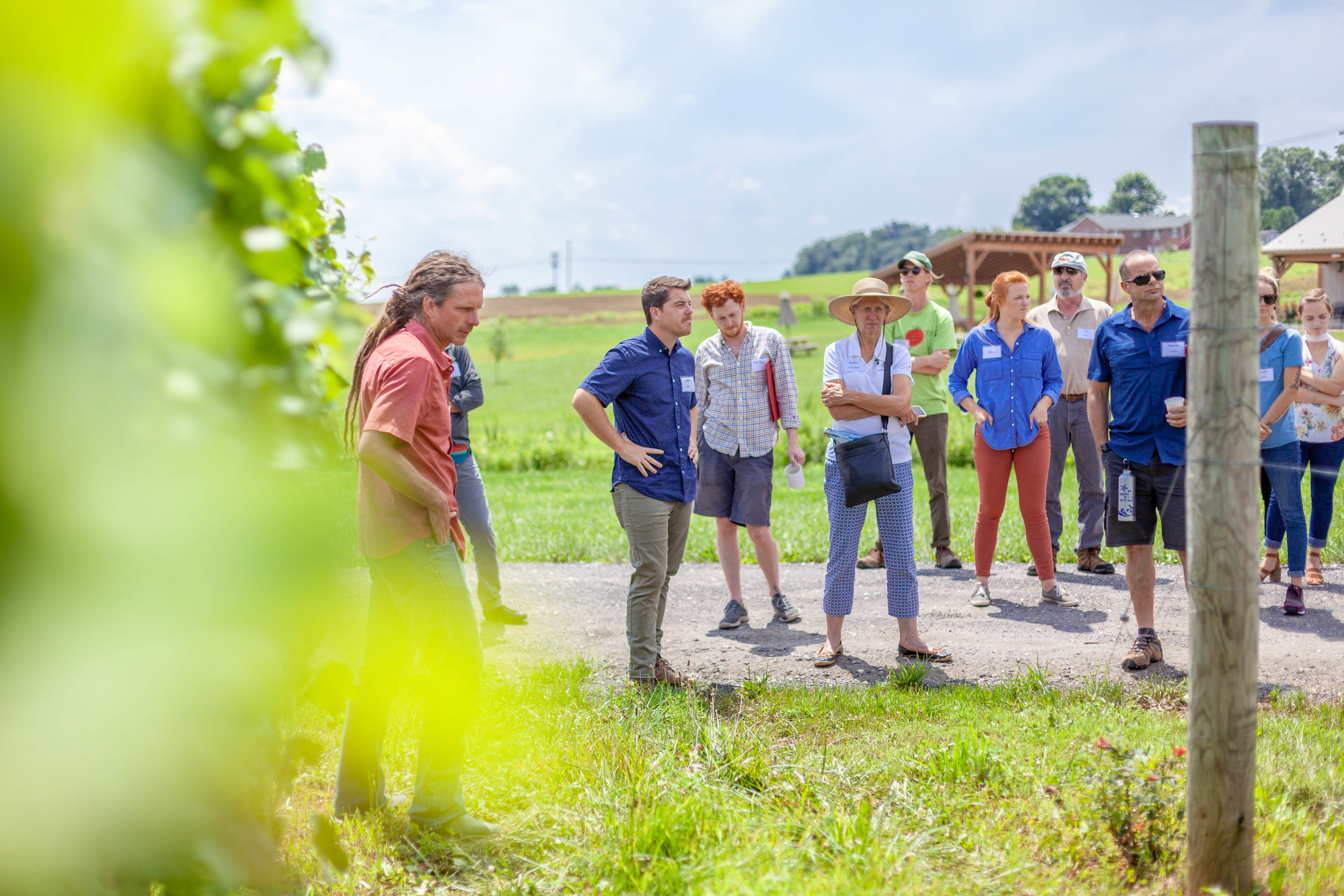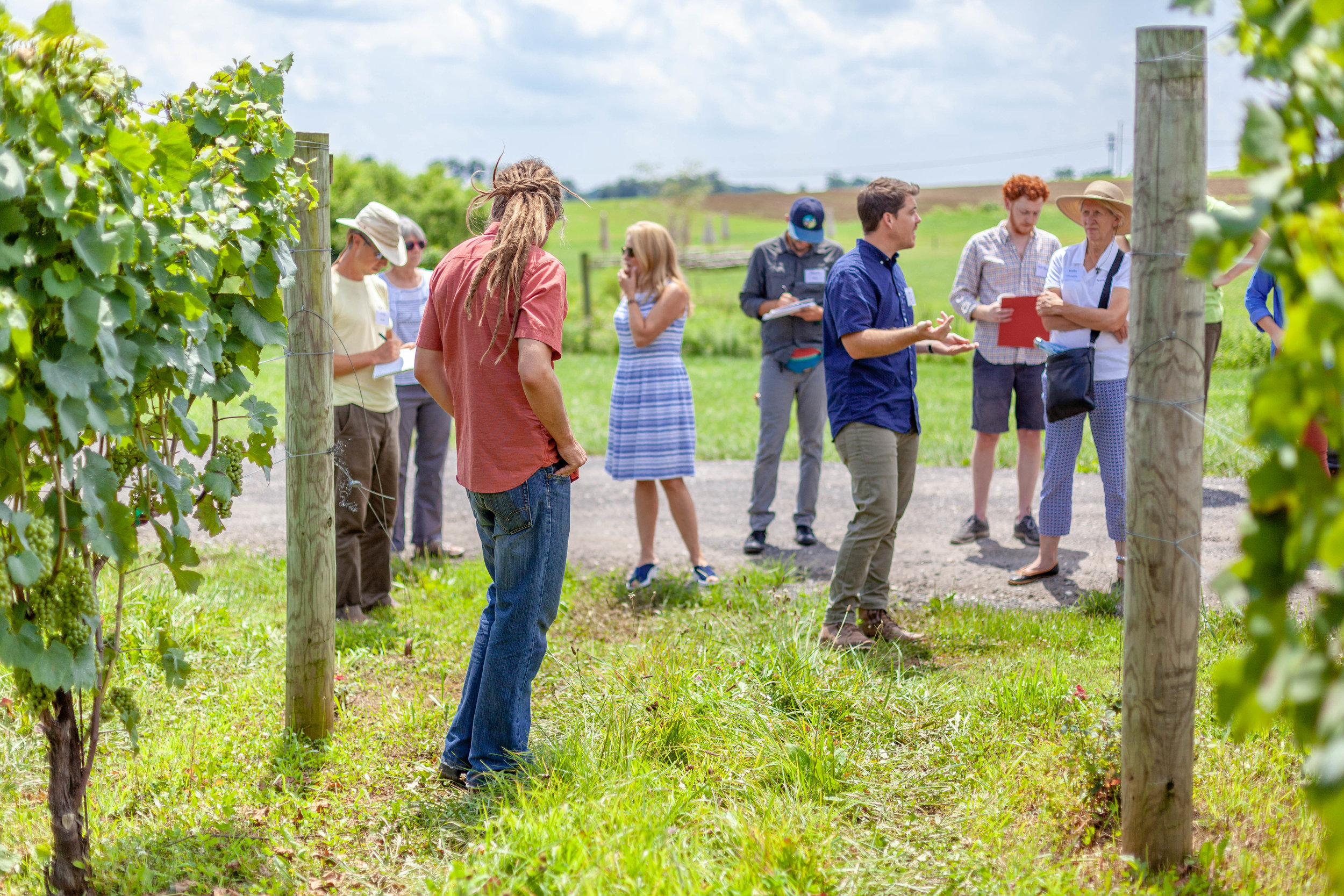Viticulture: Light Hands and Delicate Balances
Viticulture (from Latin for vine) is the fancy word for grape farming. It’s ancient, complex, frustrating, and beautiful.
The farm and its surrounding areas are continually shaped and realized and everything all together is considered one living organism. So much so that when you pull on one thing in nature, you see that it moves everything else. Everything in a given ecosystem is connected - and it’s delicate.
What we do on our farm affects the one next to us, and visa versa. We are constantly learning and paying close attention to patterns, anomalies, what is living on our farms, and how all these elements pertain to growing healthy grapes.
You could think of it like a diet. We’re not just subtracting. We’re also adding - eating things that support and build our immune/metabolism systems.
Similar with the farm.
Wherever/whenever humanly possible, and with light hands, we work in tandem with nature to create optimal growing conditions for plant health - again, within the context of the entire local ecosystem.
We ride the vintage to see what each year gives us… some years are hotter and some are rainier… then we react in the vineyard and prune/leaf pull/hedge/cut grass/intervene accordingly.
This is the beauty and madness of growing grapes!
But why do we care so much? Well, because the quality of a wine is determined first and foremost by the quality of the grapes from which it was made. And the quality of the grapes is predicated on the quality of the site where they’re grown and attention to detail by the farmer.
So much about a field, like soil type and topography, is not easily improved. But there are some things, like biodiversity and soil resiliency, that greatly impact outcomes and can be enriched through thoughtful farming practices.
For those of you interested in our approach with sprays & practices, here are some basics:
Cover Crops: There are several plant ‘types’ we focus on: legumes, grasses, small grains, brassica, and flowers. Our aim is to always maintain diversity, knowing that plants feed soil.
Field Sprays: Biodynamic preparations add to the life processes of the soil and overall health of the farm.
BD #500: A composted manure spray applied to the vineyard floor to increase microorganism health and introduce more beneficial decomposers
BD #501: A silica spray applied to the plants to increase photosynthesis around veraison (onset of ripening) to encourage fruit maturation
BD #508: A tea made from dried horsetail herbs and sprayed onto the plants to prevent fungal disease
We avoid broad spectrum products or anything with "dirty chemistry"; we have narrowed down specific times for sensitive or vulnerable pests/diseases, and spray only for those things. We do this rather than spraying at general times, and killing everything, like the beneficial bugs. Ex.- we use BeetleGONE, a USDA organic biological insecticide, to fight invasive Japanese beetles. And we use targeted Grape Berry Moth sprays during their first generation, right before bloom, rather than broad spectrum synthetic insecticides.
We keep the vineyard floor totally covered with cover crops, rather than using herbicide under vine or tilling. This helps to curb vine vigor, reduce mechanical vineyard passes, and minimize erosion.
Similar to the interconnectivity of nature, we farmers can really benefit from each other and the learning process never really ends. This is why we are proactively working and learning with others regarding biodynamics, sprays, safety, and best practices to work together so that we can all achieve success.
To this end, we are active in groups where shared ideas and strategies are celebrated - looking to better ourselves and our teams.
We also host events like the upcoming Biodynamics for Vineyards Part II, where Joseph Brinkley, Director of Vineyard Operations at Bonterra Vineyards, will lead a two-day workshop at our farm about how biodynamic practices can be incorporated into a commercial farming operation. The workshop will include classroom time, hands-on prep making, and vineyard walks. Attendees come away with practical information to incorporate into their farms.
Welcome to HARVEST SEASON EVERYBODY!
Want to learn more? Join us after harvest for: Biodynamics for Vineyards Part II
